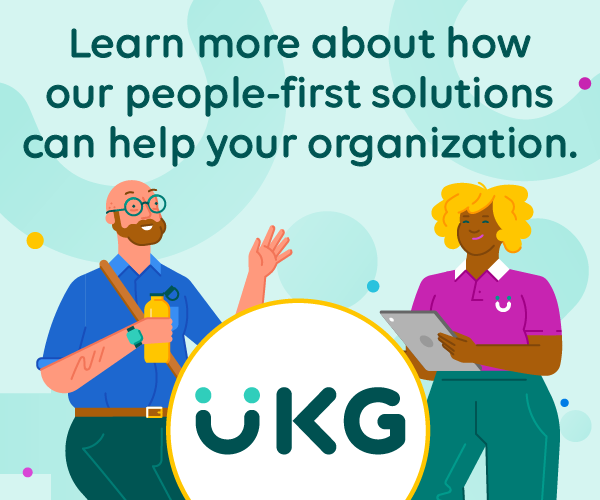HR LeadersTalk: CHRO Todd Wohler on Engineering Career Resilience
By Drew Railton, CPHR
 Todd Wohler, CPHR is the chief human resources officer with Ritchie Bros. Auctioneers—a global leader in asset management and disposition and the world’s largest industrial auctioneer. A public company headquartered in Vancouver, they have 1500+ employees globally with more than 45 permanent auction sites in North America, Europe, the Middle East, Asia and Australia.
Todd Wohler, CPHR is the chief human resources officer with Ritchie Bros. Auctioneers—a global leader in asset management and disposition and the world’s largest industrial auctioneer. A public company headquartered in Vancouver, they have 1500+ employees globally with more than 45 permanent auction sites in North America, Europe, the Middle East, Asia and Australia.
Why did you choose HR or how did it choose you?
In a way I chose it, but I had an opportunity to taste HR early in my career. I am a mechanical engineer who was recruited by Schlumberger off campus at Virginia Tech in the United States. While I started as a field engineer and enjoyed the technical field work, I didn’t intend to be a field engineer for life because the lifestyle is very demanding and not well-suited to having a family life. I worked on call and would travel to remote rigs in the middle of the Gulf of Mexico, working as long as 70 hours straight.
In my first promotion, I had the opportunity to be a campus recruiter. This was my first taste of HR and I did this for three years, during which time Schlumberger supported me in my MBA. Then I moved into internal audit in the finance function for a couple of years, but my next role was training focused on the engineers that we had been recruiting. During this time I learned how important the people component was—especially in a technical service business—and I approached my boss with a desire to build a career in HR.
What was the breakout project or thing you did to really accelerate your career?
To transition into HR, I had to choose a project to present to a panel of HR executives in Schlumberger. My project was concerning the turn-over/attrition of engineers and some proposals to reduce this turnover. This really highlighted the connection to the HR for me.
Then I asked if I could work overseas and ended up recruiting, training and doing development for a seismic, Norwegian-based business that had just purchased a German business and had decided to move the headquarters to Paris, France, which was the global HQ for their broader business. I was the HR executives right hand building the platform for this newly formed business and was exposed to the compensation issues with a global workforce.
A key challenge was that we had crews doing the same job side-by-side on a ship, but had different countries of origin with very different cost bases and thus were paid differently. How to handle these “commuters” and pay them fairly, gave me access to the senior executives around some key strategic business issues. This is where I really built my credibility.
What advice do you wish someone had given you earlier in your career?
As an HR professional it is critical that you know the business. The fact that I came through business in revenue-generating roles really gave me an understanding of the business and thus immediate credibility. I didn’t have the soft side of the HR skill set as an engineer, but I developed that over my career.
To be successful today as a top leader of HR it is helpful to have one or two assignments along the way where you are in the business and out of HR. You need to make a mark and prove that you can run a P&L or another operational or functional role that connects you to the business and ideally to customers. This credibility was—and is—instrumental in my career development.
How does the HR career path differ today from a decade ago?
The main thing I sense is it is not so uncommon for a top HR leader to have little or no experience in HR. They relied in the past on leaders who moved up through the function, but it is now more about being a business leader who can rely on the strength and experience of an HR team. This circles back to how important it is to have worked in the business and bring that credibility—so that you really stand out and can be a business partner with the CEO and executive team.
Many HR professionals likely chose HR because they are social and maybe have a more extroverted personality—but this is not the reason to go into HR. If the end goal is to be a senior leader, it is about strategy and having analytical strength. This was the key for me to entering the executive ranks—because I knew the business, I could analyze needs and build action plans to solve business problems.
You don’t need to be engineer like me, but having a balanced mind that can analyze numbers and have the softer side is a great combination. You need to build both sides of your experience base as you grow, and developing through a combination of functional HR roles and operational roles is a big plus in my view.
What gives you the resilience to get through tough times?
My faith.
I also don’t assume at any point that it is all me and I alone need to solve all the problems. I don’t take all the credit when things are going well, but make sure to share that with my team. When I was younger, I took the weight of the world on my shoulders, feeling I needed to be the solution to all the problems.
What a relief when I realized that I needed to share this with my team and build a strong team around me. As I progressed, there was no way I could do it all and had to rely on a team. It changed the way I lead. I have learned to let go of things more, trust my strong team and focus on enabling and recognizing them.
Drew Railton, CPHR is managing partner, Western Canada for Caldwell Partners.
(PeopleTalk Fall 2017)







